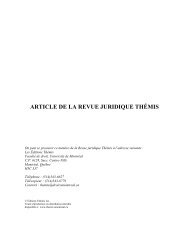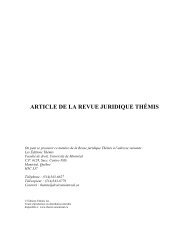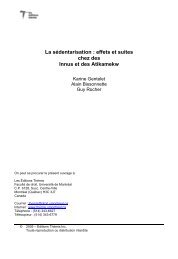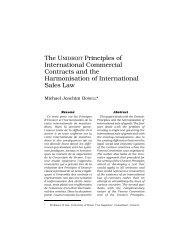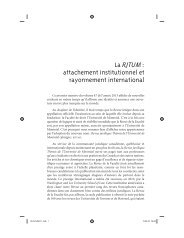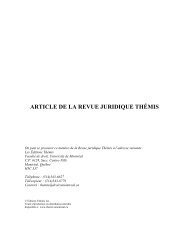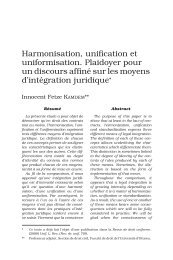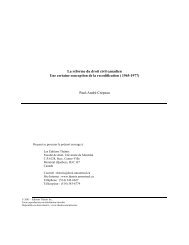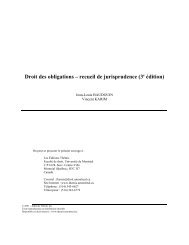The UNIDROIT Principles of International Commercial Contracts and ...
The UNIDROIT Principles of International Commercial Contracts and ...
The UNIDROIT Principles of International Commercial Contracts and ...
You also want an ePaper? Increase the reach of your titles
YUMPU automatically turns print PDFs into web optimized ePapers that Google loves.
THE <strong>UNIDROIT</strong> PRINCIPLES AND MERCOSUR COUNTRIES 415<br />
III. Conclusions: Possibilities <strong>and</strong> Paradoxes<br />
This brief analysis <strong>of</strong> the <strong>Principles</strong>’ effectiveness in the MERCO-<br />
SUR countries reveals not only the different levels <strong>of</strong> acceptance <strong>of</strong><br />
party autonomy in the region but also a face <strong>of</strong> the possibilities <strong>and</strong><br />
paradoxes <strong>of</strong> the MERCOSUR as an integration process.<br />
As to the possibilities <strong>of</strong> integration, they are several. T h e<br />
MERCOSUR is best defined as a process, a work in progress based on<br />
pragmatism <strong>and</strong> not necessarily on a pre-conceived <strong>and</strong> idealized<br />
integration model, as was the case at the origin <strong>of</strong> the Euro p e a n<br />
Union. It constitutes a potential market <strong>of</strong> 215-million population,<br />
endowed with a US$ 1 trillion GDP, which places it among the four<br />
largest world economies, after the NAFTA, the European Union <strong>and</strong><br />
Japan.<br />
On the 10th anniversary <strong>of</strong> the 1991 Asuncion Treaty, the<br />
MERCOSUR can celebrate the removal <strong>of</strong> 95% <strong>of</strong> its tariff barriers to<br />
i n t r a - regional trade <strong>and</strong>, despite the recent Argentine crisis,<br />
ME R C O S U R still experiences increasing trade exchange between its<br />
members <strong>and</strong> partners, <strong>and</strong> increasing integration initiatives in<br />
cultural, political, educational <strong>and</strong> social sectors.<br />
<strong>The</strong> underlying interest <strong>of</strong> studying the application <strong>of</strong> the<br />
<strong>Principles</strong> in the South Cone region relates to the actual needs that<br />
arise in the world <strong>of</strong> international trade, where this non-legislative<br />
means <strong>of</strong> unification or harmonization <strong>of</strong> law reveals undeniable<br />
usefulness.<br />
Despite the fact that a high level <strong>of</strong> legislative harmonization in<br />
some MERCOSUR areas already exists, notably in the fields <strong>of</strong> interjurisdictional<br />
cooperation (letters rogatory, contractual jurisdiction,<br />
p rovisional measures, foreign judgements <strong>and</strong> arbitral award s ) ,<br />
consumers’ rights <strong>and</strong> civil liability, it could not be exaggerated to<br />
expect from the ME R C O S U R authorities greater efforts to harm o n i z i n g<br />
conflict rules in contractual matters.<br />
Assuming the importance <strong>and</strong> effectiveness <strong>of</strong> the <strong>Principles</strong> to<br />
h a rmonizing the law <strong>of</strong> international commercial contracts, it<br />
becomes necessary for the ME R C O S U R countries to establish legal<br />
p rovisions allowing the parties to an international contract to make<br />
wide use <strong>of</strong> their autonomy to choose the law applicable to the



